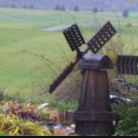We previously briefly touched on the importance of your ancestor’s Last Will and Testament, an excellent source of family documentation. Wills are filed at surrogate court or county clerk’s office along with estate records for those who died intestate (without a will), inventories of estates, letters of administration, and guardianships, etc.
Some older wills may be found online at Sampubco Wills as posted by W. David Samuelson from whom you may purchase documents. This site includes wills, guardianships, surrogate’s records/probate files, naturalizations, letters of administration, and cemetery listings. Records are available for several states via alphabetical name search by county. From my experience, mostly older wills are available, but not all of them. I can, however, recommend this site as I purchased several ancestral wills more reasonably than from surrogate’s court or county clerk’s office. However, it is still advisable to go to the appropriate office to search for and copy complete records, which I also did.
One drawback can be old style writing and language. Having begun my secretarial career in an Owego law firm, researching and copying old deeds and wills in shorthand, I was familiar with most of the standard language. After transcribing eighteenth and nineteenth century ancestral wills I’d purchased, I submitted several online to respective county genweb sites. They provide an opportunity for future researchers to use this gift, a way to pay back the gifts others have freely placed online to aid in research. It’s all about helping each other on the journey.
As for the old language of bequeathing one’s estate, I share excerpts in original format from the wills of a few of my ancestors – original spelling or misspelling retained.
Henrich/Henry Kniskern, signed 1780, probated 1784: “In the Name of God Amen. I, Henrich Knieskern at Shoharry [Schoharie] in the County of Albany [before Albany became several counties] farmer being at present weak in Body but of Sound Mind and Memory… considering that it is appointed for us all once to Die do this Eight Day of May in the Year of Our Lord Christ One Thousand Seven Hundred and Eighty make and Publish this my Last will and Testament in manner and form following that is to Say I recommend my Soul unto God that gave & my body unto the Earth from whence it came to be decently Interred… I give and bequeath unto my eldest Son… five Pounds Lawful money of New York (I Mean and Understand good hard Silver Money) for his birth Right… it is my will and Ordre that my Wife… shall have her supporting and Maintainment yearly and Every Year for her Life Time of my Estate in Knieskerns Dorph… [Kniskernsdorf is a now-extinct hamlet established on the Schoharie Creek by my ancestor, Johann Peter Kniskern, the Listmaster of one of the original 1710 Palatine settlements on the Hudson River.] …I Give unto my Two Sons… together Equally my farming utenciels and Tools as both or Two Waggons & Two Sleeds Ploughs and Harrows with all the Tackling and furniture thereof… axes hoes & other Implements of husbandry… I Give to my Two Daughters, as bed Goods, Pewter Goods, Iron pots, Cooper goods & other goods… I give to my Two Sons… Equally my Loom and all & Every articles that belongs to Weavers…”
Adam Dingman, a prosperous freeholder of Kinderhook and Albany, wrote “...know all men that in the year seventeen hundred and twenty and twenty-one, the twenty-first day of January, in the seventh year of the reign of our sovereign lord, King George, I, Adam Dingeman, born at Haerlem, Holland, sick and weak of body, but having the perfect use of my senses…” Unfortunately, he did not name his children from whom I have proven descendancy.
George Hutton, son of Lt. Timothy Hutton, listed all children, with daughters by their married names, a very helpful will. An interesting inventory with values was attached to his wife Elizabeth’s will from 1845. Numerous items were listed, including “1 feather bed $7.25, 1 blue and white spread $4.00, 1 straw bed tick $.25, 1 brown calico dress $.37, 1 black cashmere shall $.75, 1 pr morocco shoes $.50, 1 rocking chair $1.00.”
Other wills bequeath hereditaments (one of my favorite words), i.e. land, crops, tools, animals. A McNeill family will “allows” an unmarried sister to use half of the house for life. And an inventory made in 1758 for the estate of John McNeill, an apparently wealthy mariner (father of John C. McNeill), includes “1 Jacket of Cut Vellvet & 1 pair of Black Vallvet Britches, 1 paire of Lether Buckskin Britches, 1 Great Coat of Davinshire Carsey, 1 fine linnin Sheet x3 coarse ones, 1 45 weight of fetther, 1 paire of carved Shew buckells & knee buckells of silver, 1 paire Sleve buttons of gold, 2 Small Bibells w/one Silver clasped, 1 book called fishers Arithmitick, 1 seet of Harrow teeth, 1 Seet of plow Irons.”
Old documents do make fascinating reads!
COMING NEXT: Genealogy Websites



0 Comments
Recommended Comments
There are no comments to display.